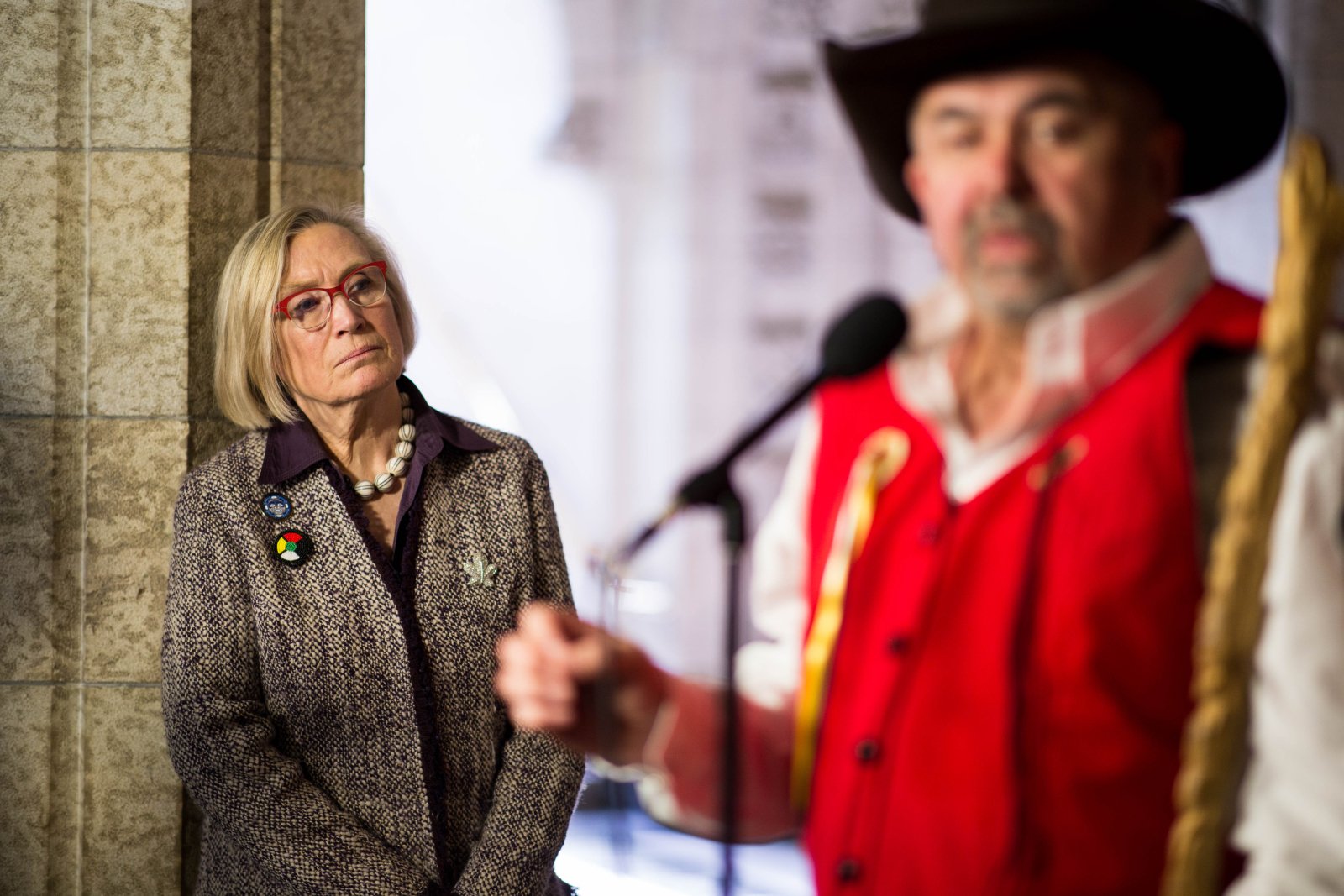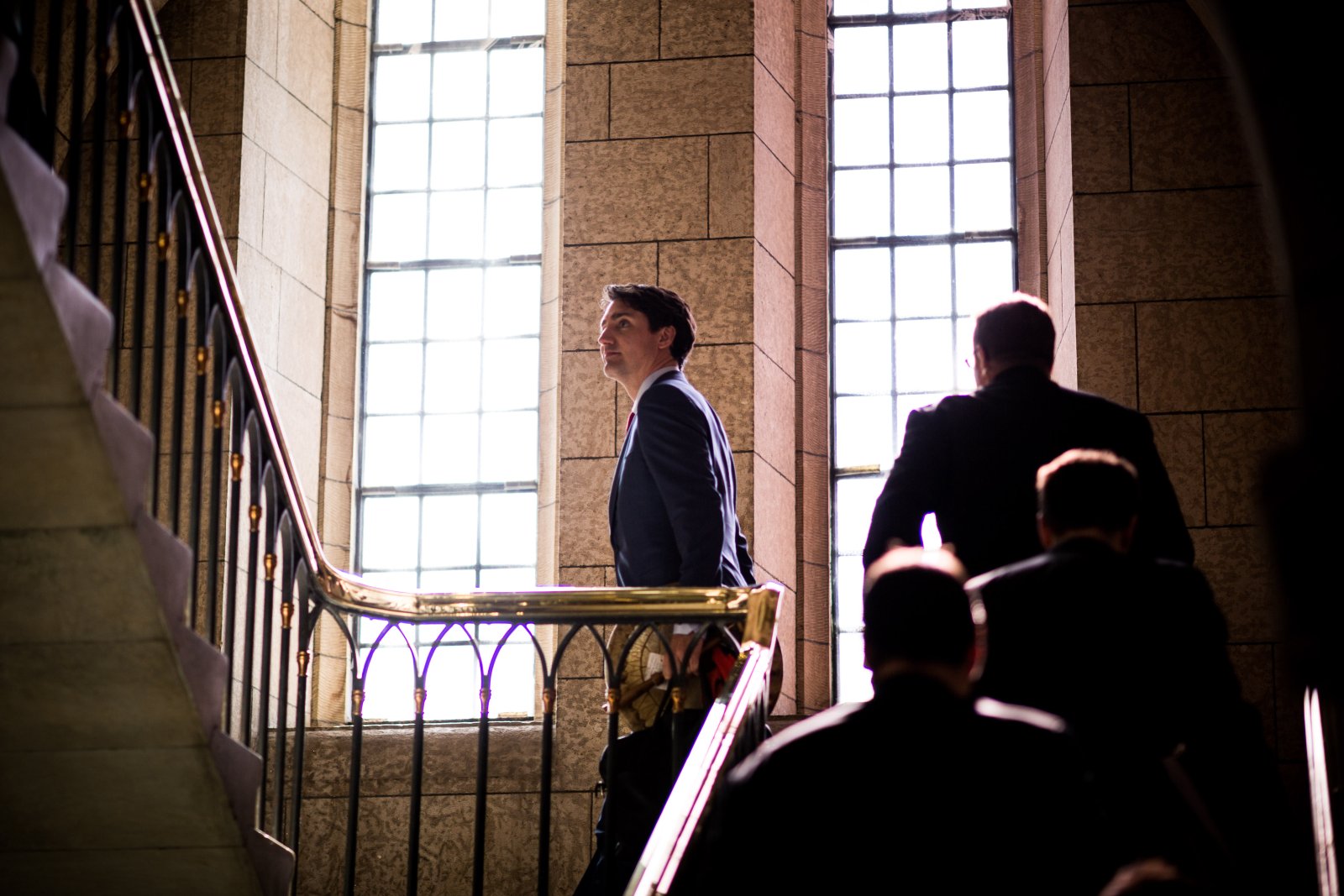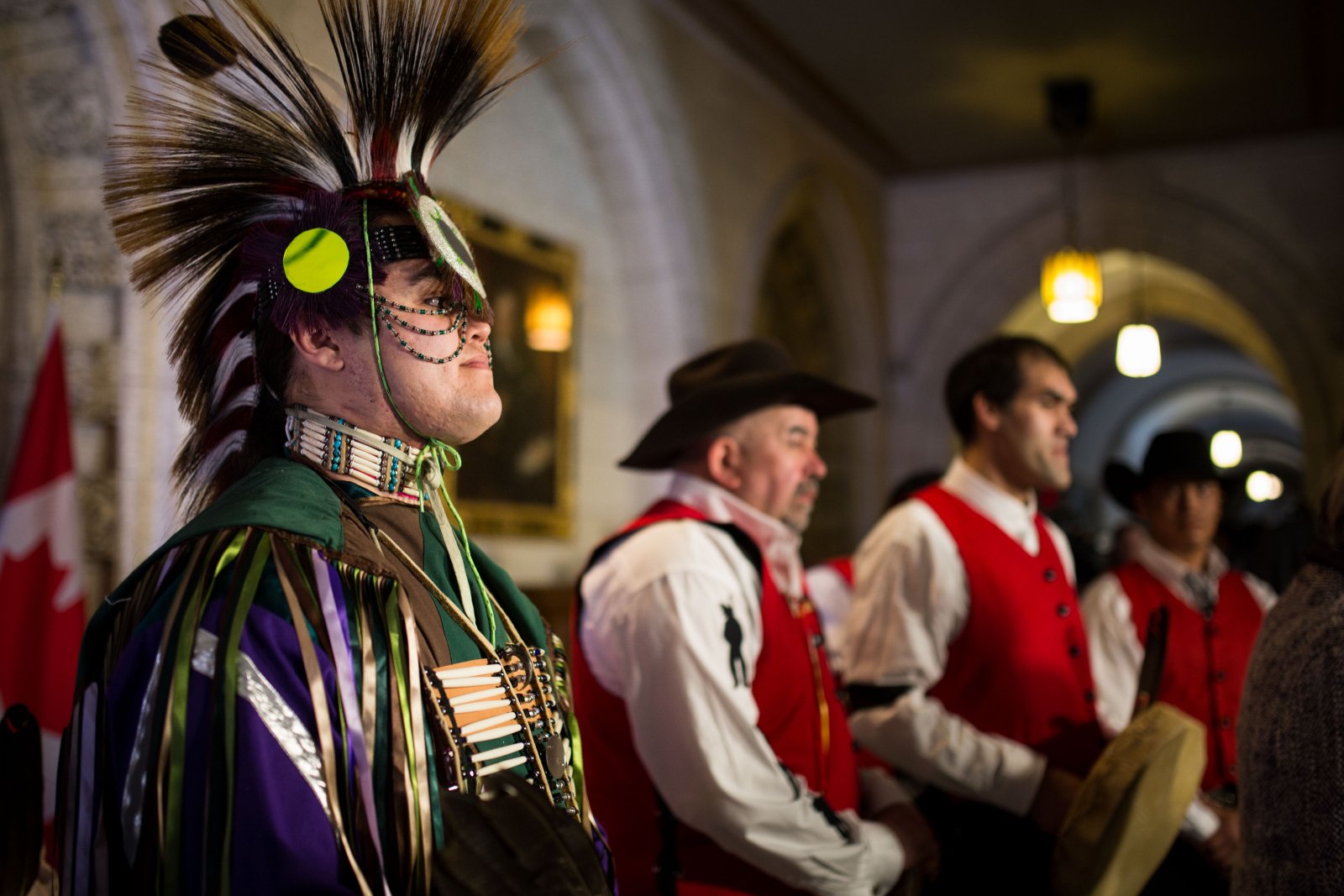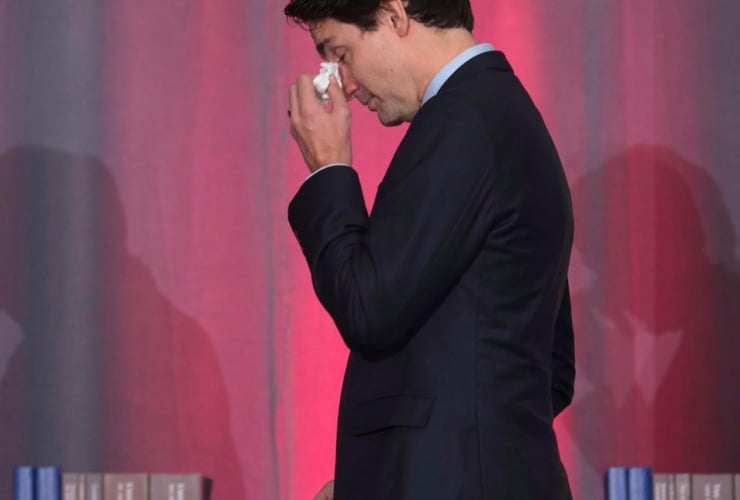Prime Minister Justin Trudeau delivered a historic apology on Monday in the House of Commons, more than 150 years in the making, exonerating six chiefs from the Tsilhqot'in Nation who were unjustly killed by a colonial government in British Columbia.
"Today our government acknowledges what the colonial government of the day was unwilling to accept: that these six chiefs were leaders and warriors of the Tsilhqot’in Nation, and that the Tsilhqot’in people they led maintained rights to land that had never been ceded," Trudeau told the Commons.
"Even though the colonial government did not recognize these rights, the chiefs acted in accordance with their own laws to defend their territory, their people, and their way of life."
Tsilhqot’in chiefs, elders and community members traveled to Ottawa for the event. It was also a historic day for the House of Commons. It was the first time that chiefs from a First Nation were welcomed on the floor while the Commons was in session. National chiefs have been welcomed as representatives, but never as a nation.
The remainder of the Tsilhqot'in delegation were joined by co-chairs for the nation's negotiations, Shawn and Heather Atleo, as well as Assembly of First Nations National Chief Perry Bellegarde, and watched the proceedings from a gallery above the floor of the Commons. The event was live-streaming in the Tl'etinqox (one of six Tsilhqot'in communities) School gymnasium, for family and friends to participate from home.
"The recognition and implementation of Indigenous rights can wait no longer," the prime minister said "And neither should the Tsilhqot’in people continue to wait for an apology that is long, long overdue."
"Men who were treated and tried as criminals in an era where both the colonial government and the legal process did not respect the inherent rights of the Tsilhqot’in people, and the Tsilhqot’in Nation," Trudeau said.
"As the Government and the people of Canada continue to come to terms with our colonial past, it is essential that we recognize and support the implementation of the rights of the Tsilhqot’in – and all Indigenous Peoples – enshrined in our Constitution."

Trudeau said that he would travel to the declared Aboriginal title lands of the Tsilhqot'in in the summer, accepting an invitation to deliver the exoneration to the Nation in person.
"Think of what Canada could have gained had we been open, those many years ago, to learning about the rich culture and traditions of the Tsilhqot’in people, and finding for it a lasting place within the fabric of Canada," he said. "For the loss of that time and opportunity, we are truly sorry."
The apology and exoneration comes 154 years after the Tsilhqot'in Nation fought against the Colony of British Columbia and white settlers in 1864, trying to protect their land, families and freedom.
In 1861, settlers attempted to build a road from Bute Inlet (150 kilometres north of Vancouver), through Tsilhqot'in territory, to access gold fields. At the same time, the Tsilhqot'in, and other First Nations in the west, were battling smallpox disease, brought by the European settlers, which devastated populations. To this day, the nation claims, that between 1862 and 1863, over 70 per cent of the Tsilhqot’in population died from the disease.
Relationships between white road workers and the Tsilhqot'in worsened when one worker threatened to spread more smallpox to the community, a historical fact Trudeau recalled in the Commons on Monday.
On April 30, 1864, the Tsilhqot'in declared what later became known as "The Chilcotin War." In the war between two nations, the Tsilhqot'in killed many workers. The Colony of B.C. responded by sending militia into the territory, in search of the leaders of the opposition.
They burned homes, destroyed fishing equipment and prevented people from gathering food. The governor eventually sent a sacred gift of tobacco to the Tsilhqot'in and an initiation to a discuss Peace Treaty. A Tsilhqot'in war party rode into their camps, in a show of good faith.

Rather than being greeted with respect, the chiefs were tricked. Five of them were shackled, accused of massacring a road-building party and hanged in Quesnel. A sixth chief was tried and hanged the following year in New Westminster.
"Their capture and arrest by the colonial government demonstrated a profound lack of respect for the Tsilhqot’in people, as did the refusal to recognize Tsilhqot’in as a nation. Those are mistakes that our government is determined to set right," Trudeau said.
But the apology and exoneration stems from the leadership and determination of members of the Tsilhqot'in Nation, who battled relentlessly for years to get justice for their war chiefs and for their nation. The event also follows a landmark Supreme Court decision from 2014 that recognized the Tsilhqot'in's Aboriginal title to land. It was a court case that took many decades of work by Tsilhqot'in elders and knowledge keepers.
Trudeau's gesture comes at a time when his Liberal government is facing criticism from some First Nations who say they were not adequately consulted prior to the federal approval of the west coast Trans Mountain pipeline expansion project proposed by Kinder Morgan. A separate group of First Nations has also criticized the Trudeau government for blocking their economic development through proposed legislation to implement a ban on oil tankers off the northwest coast of British Columbia.
The prime minister, who has said that no relationship is more important to his government than the one it has with Indigenous people, said that the exoneration was an important symbol of Ottawa's commitment to reconciliation.
The event concluded with a song drummed and led by Tsilhqot'in cultural youth ambassador Peyal Francis Laceese. As he sang, the six chiefs turned their black vests inside out, to reveal red vests. The delegation later shared that the black represented death, while the red new life, new relationships and new opportunity. It was another first for a session of the Commons. After Laceese finished the song, he gifted the prime minister the drum and gave him a hug.

In the Opposition's response, MP Cathy McLeod, the Conservative critic for Indigenous affairs, said the six Tsilhqot'in war chiefs did what anyone would have done in the same situation — defended their land, their families and their way of life.
"Moments such as this cannot change behaviour from another era," McLeod told the Commons. "We can however recognize a clear lasting and profound impact that past actions have had and scars that have not been healed."
Quebec MP Guy Caron offered the New Democrats' support for the exoneration and called the apology long overdue, as well as calling for the creation of a national Indigenous peoples day as a statutory holiday.
"Thank you for your patience with our young country as we strive to do better," he said to the Tsilhqot'in leaders.
with files from The Canadian Press





Comments